
Strendur: A Serene Escape in the Faroe Islands
Nestled on the eastern coast of Eysturoy, Strendur is a tranquil village that offers an authentic taste of life in the Faroe Islands. With its stunning natural scenery, Strendur is a haven for those seeking peace and quiet, far from the hustle and bustle of modern life. The village is surrounded by rolling hills and dramatic cliffs, providing breathtaking views at every turn. Strendur is also a gateway to some of the Faroe Islands' most beautiful hiking trails. One of the most popular hikes takes you to the top of the nearby mountain, Viðoy, where you can enjoy panoramic views of the North Atlantic Ocean and the surrounding islands. The village itself is charming, with traditional Faroese houses and a small harbor where you can watch local fishermen at work. For those interested in culture, Strendur has a rich history that is reflected in its local landmarks. The village church, built in the 19th century, is a great place to learn about the Faroese way of life. And don't miss the opportunity to interact with the friendly locals, who are always eager to share stories about their heritage and traditions.
Local tips in Strendur
- Visit during the summer months for the best weather and longer daylight hours.
- Pack layers and waterproof clothing, as the weather can be unpredictable.
- Take advantage of the local hiking trails for breathtaking views.
- Explore the village on foot to fully appreciate its traditional charm.
- Try local Faroese dishes at the village's small eateries.
Strendur: A Serene Escape in the Faroe Islands
Nestled on the eastern coast of Eysturoy, Strendur is a tranquil village that offers an authentic taste of life in the Faroe Islands. With its stunning natural scenery, Strendur is a haven for those seeking peace and quiet, far from the hustle and bustle of modern life. The village is surrounded by rolling hills and dramatic cliffs, providing breathtaking views at every turn. Strendur is also a gateway to some of the Faroe Islands' most beautiful hiking trails. One of the most popular hikes takes you to the top of the nearby mountain, Viðoy, where you can enjoy panoramic views of the North Atlantic Ocean and the surrounding islands. The village itself is charming, with traditional Faroese houses and a small harbor where you can watch local fishermen at work. For those interested in culture, Strendur has a rich history that is reflected in its local landmarks. The village church, built in the 19th century, is a great place to learn about the Faroese way of life. And don't miss the opportunity to interact with the friendly locals, who are always eager to share stories about their heritage and traditions.
When is the best time to go to Strendur?
Iconic landmarks you can’t miss
Kirkjubømúrurin
Explore Kirkjubøur, the historical heart of the Faroe Islands, where ancient ruins meet breathtaking landscapes and vibrant local culture.
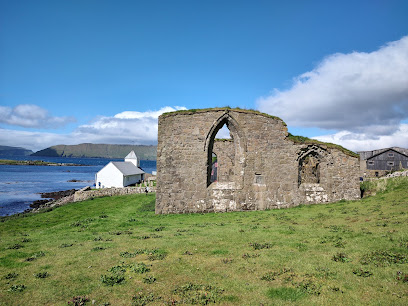
Gjógv Natural Harbour
Experience the breathtaking beauty of Gjógv Natural Harbour, a serene destination in the Faroe Islands, renowned for its dramatic cliffs and vibrant landscapes.
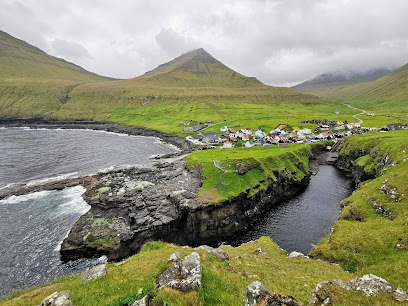
The Nordic House
Discover the essence of Faroese culture at The Nordic House, a vibrant cultural center in Tórshavn showcasing art, music, and culinary delights.
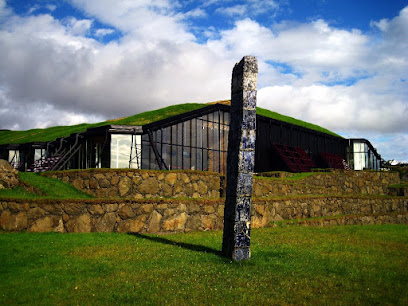
Skansin
Discover the historic Skansin fortress in Tórshavn, where captivating views and rich maritime heritage await every visitor.
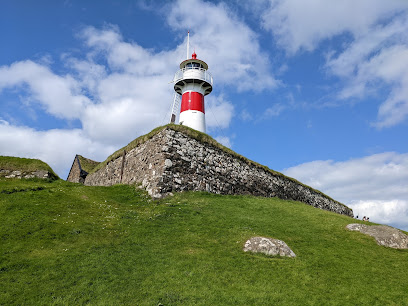
Trælanípa
Explore the breathtaking cliffs of Trælanípa, a stunning natural attraction in the Faroe Islands, offering spectacular views and unforgettable hiking experiences.
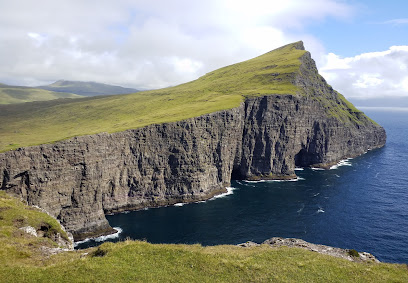
The Seal Woman (Kópakonan)
Explore the legend of Kópakonan, the Seal Woman, at Mikladalur, where artistry meets folklore against a backdrop of stunning coastal beauty.
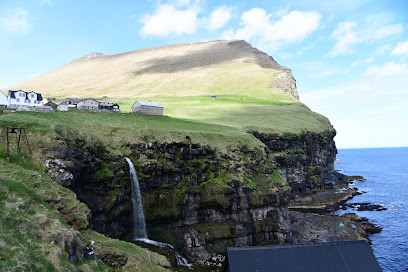
The National Gallery of The Faroe Islands
Discover the vibrant art scene at The National Gallery of The Faroe Islands, showcasing local and contemporary masterpieces in a stunning setting.
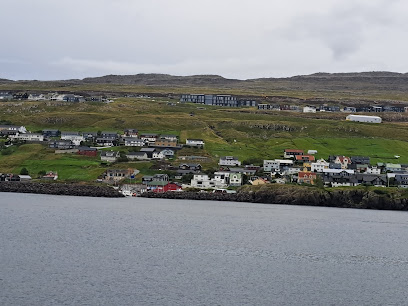
Tjóðsavnið (Faroe Islands National Museum)
Discover the heart of Faroe Islands culture at Tjódasavnið, a captivating museum showcasing art, heritage, and natural history.
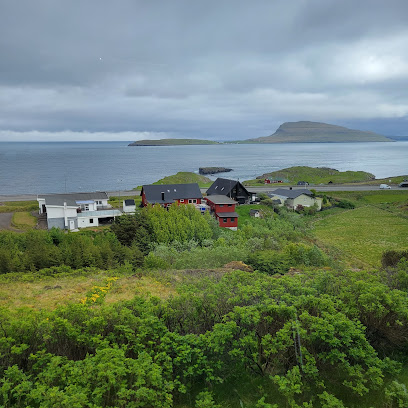
Kallur Lighthouse
Discover Kallur Lighthouse in the Faroe Islands, a breathtaking hiking destination with stunning ocean views and rich maritime history.
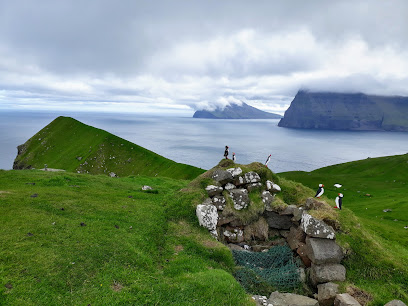
Bøsdalafossur Waterfall
Experience the breathtaking beauty of Bøsdalafossur Waterfall, a majestic cascade in the heart of the Faroe Islands, perfect for nature lovers and adventurers.
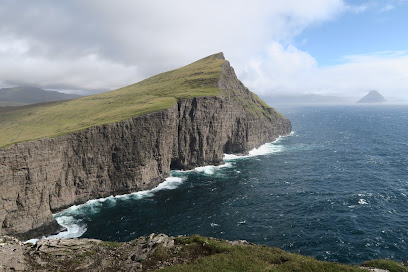
Slave Cliff (Lake Above the Ocean)
Experience the breathtaking beauty of Slave Cliff, a stunning hiking area in the Faroe Islands, where nature meets adventure above the ocean.
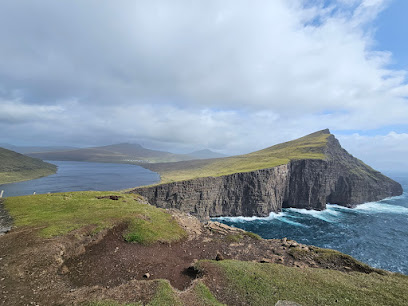
Klakkur
Discover the breathtaking beauty of Klakkur in the Faroe Islands, where panoramic views and stunning hikes await adventurous travelers.
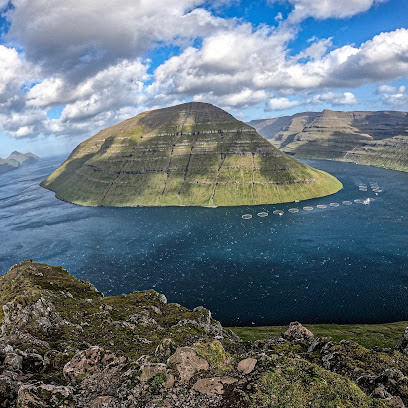
Tórshavn Cathedral
Experience the rich history and stunning architecture of Tórshavn Cathedral, a cultural landmark in the heart of the Faroe Islands.
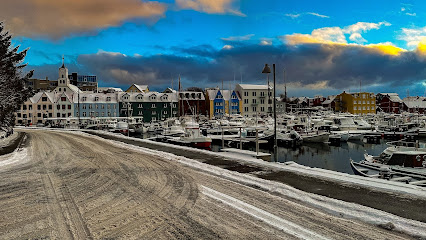
Slættaratindur
Discover the breathtaking heights of Slættaratindur, the majestic peak of the Faroe Islands, where stunning views and exhilarating hikes await.
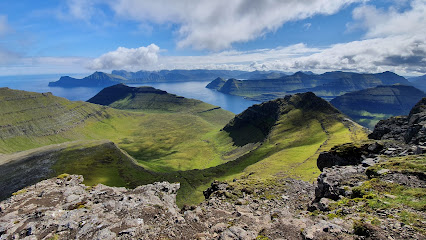
Suppugarðurin
Discover the authentic flavors of Japan at Suppugarðurin, a cozy ramen restaurant in Tórshavn, Faroe Islands, perfect for culinary explorers.
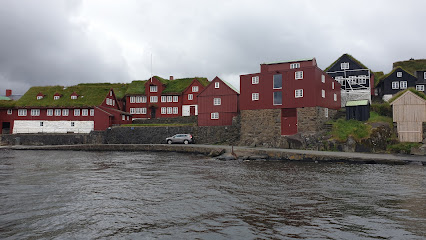
Unmissable attractions to see
Múlafossur Waterfall
Experience the majestic Múlafossur Waterfall in the Faroe Islands, where cascading waters meet dramatic cliffs and charming village scenery.
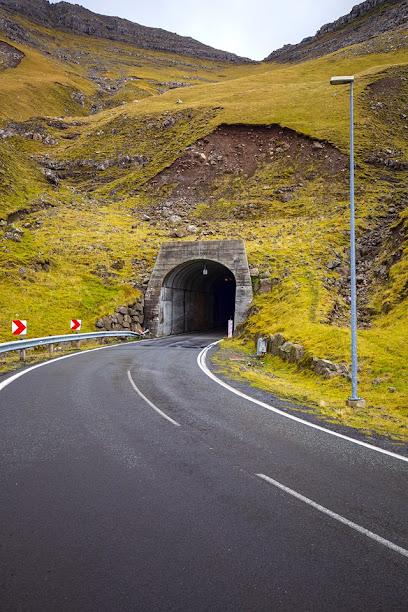
Gjógv Natural Harbour
Discover Gjógv Natural Harbour: A picturesque Faroese village with a stunning sea gorge, rich history, and breathtaking North Atlantic views.
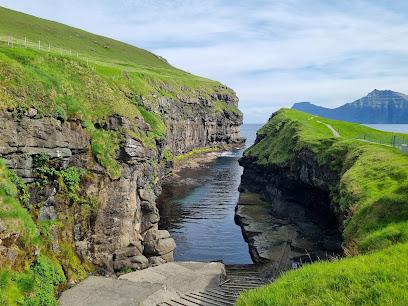
View on Mullafossur and Gasadalur village
Witness the iconic Múlafossur Waterfall cascading into the North Atlantic, a must-see natural wonder near Gásadalur village in the Faroe Islands.
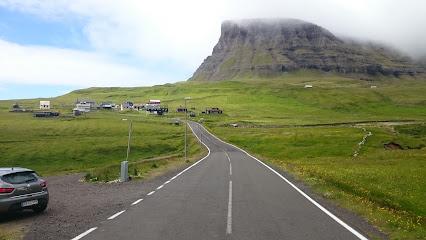
The Seal Woman (Kópakonan)
A bronze statue in Mikladalur, Faroe Islands, honoring the legend of the Seal Woman (Kópakonan) and the captivating folklore of the islands.
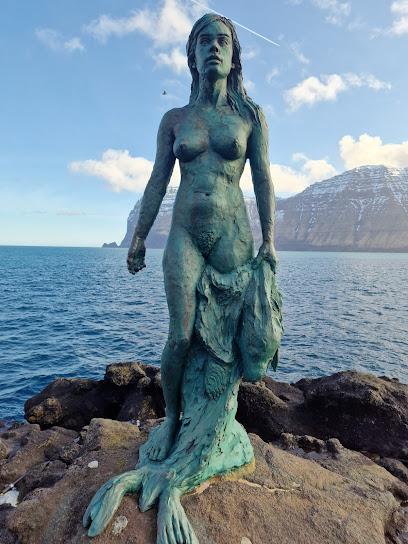
Kallur Lighthouse
Hike to the iconic Kallur Lighthouse on Kalsoy Island for breathtaking views and a touch of James Bond magic in the Faroe Islands.
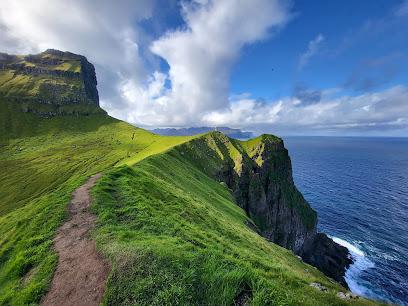
Tjørnuvik Beach
Discover Tjørnuvík Beach: black sands, stunning sea stacks, and Viking history in a serene Faroese village. A must-see destination!
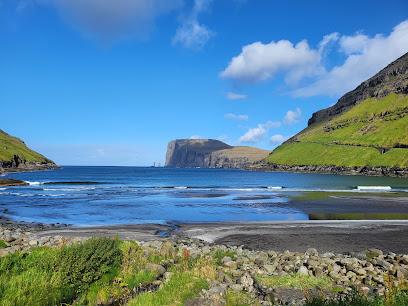
Svartafoss Waterfall
Discover Svartafoss Waterfall near Tórshavn: a serene escape with stunning basalt scenery, perfect for nature lovers and photographers.
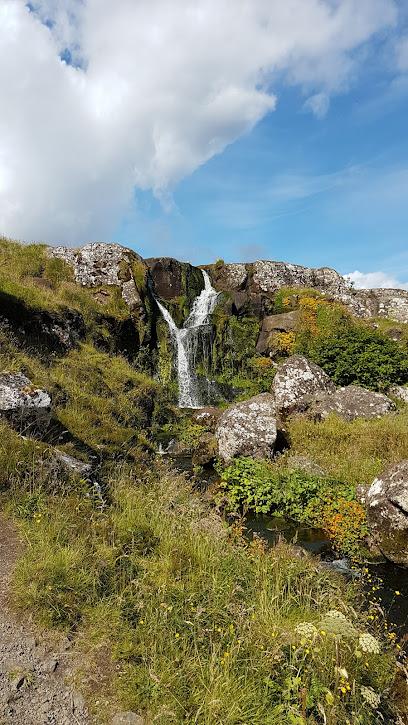
Risin og Kellingin viewpoint
Witness the legendary Giant and Witch sea stacks from this easily accessible viewpoint on Eysturoy, offering breathtaking panoramic views of the Faroese coastline.
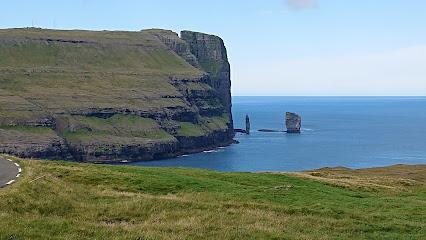
Skarðsáfossur
Discover Skarðsáfossur waterfall in the Faroe Islands: a hidden gem offering majestic views of cascading water, rugged cliffs, and serene beauty.
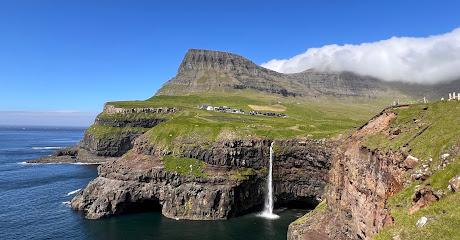
Djúpumýra Stadium
Experience the passion of Faroese football at Djúpumýra Stadium in Klaksvík, surrounded by breathtaking island scenery.
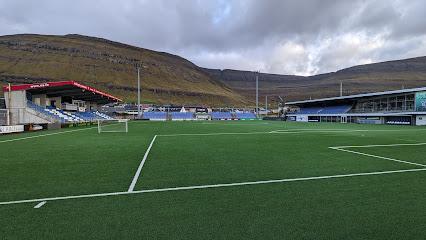
Eysturoy Tunnel
Experience the world's first underwater roundabout in the Faroe Islands, connecting islands and cultures beneath the sea.
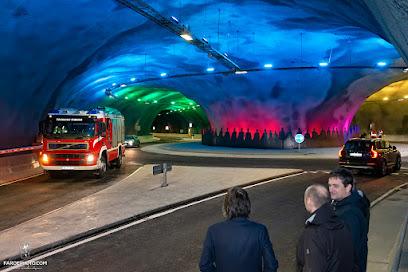
Sunset Viewpoint
Experience breathtaking sunsets and panoramic views at Gásadalur's Sunset Viewpoint, a serene escape in the Faroe Islands' stunning landscape.
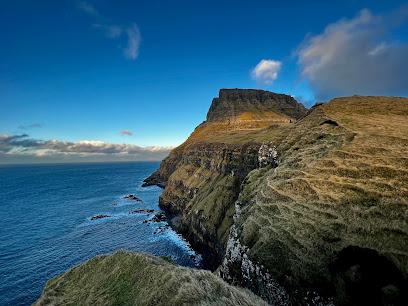
Klovningur
Discover Klovningur's stunning landscapes in the Faroe Islands: dramatic cliffs, lush greenery, and panoramic views await!
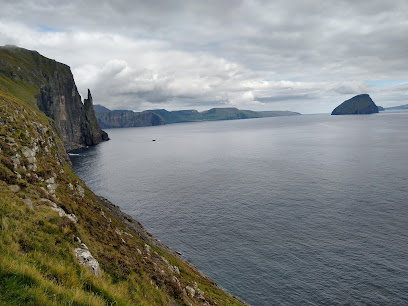
Reistu búgv á hesum stað 1833
Discover the serene memorial park in Skopun, Faroe Islands, a place of reflection surrounded by breathtaking natural beauty and rich history.
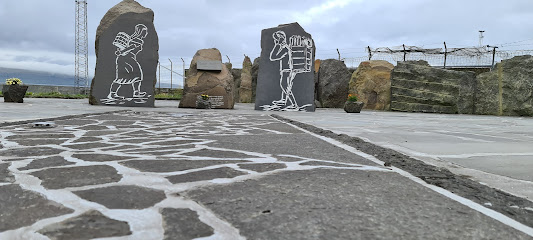
Sculture
Discover captivating sculptures in Tórshavn, Faroe Islands, where art and nature blend seamlessly to inspire and reflect local culture.
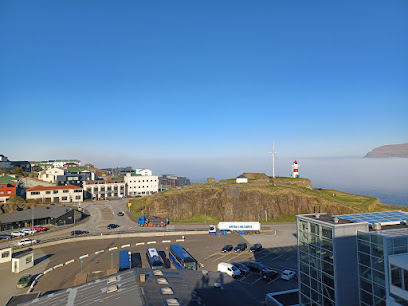
Essential places to dine
Katrina Christiansen
Experience authentic Scandinavian cuisine at Katrina Christiansen in Tórshavn - A culinary gem in the heart of the Faroe Islands.
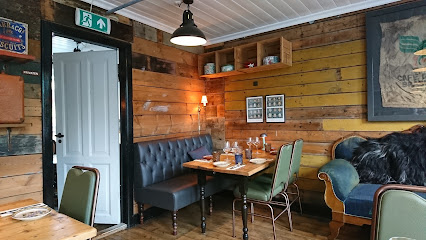
Angus Steakhouse
Experience exquisite dining at Angus Steakhouse in Tórshavn - where premium steaks meet local flavors in a cozy atmosphere.
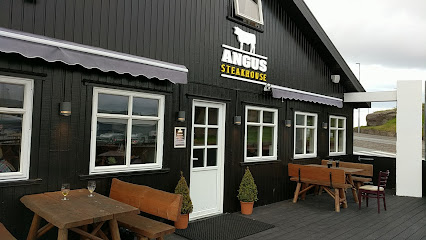
THE TARV Grillhouse
Experience exceptional Faroese cuisine at THE TARV Grillhouse in Tórshavn—where fresh local ingredients meet stunning waterfront views.
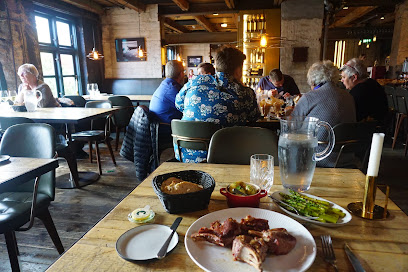
Áarstova
Experience authentic Faroese flavors at Áarstova, Tórshavn's top restaurant blending tradition with modern culinary artistry.
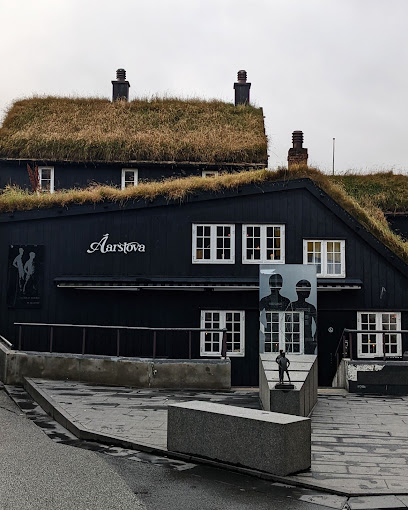
Barbara Fish House
Experience exquisite seafood dining at Barbara Fish House in Tórshavn, where fresh catches meet Faroese culinary traditions.
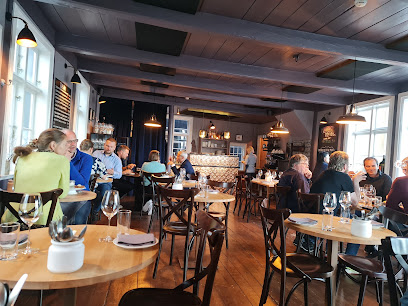
Toscana
Experience authentic Italian flavors blended with fresh seafood and prime cuts at Toscana in Tórshavn.
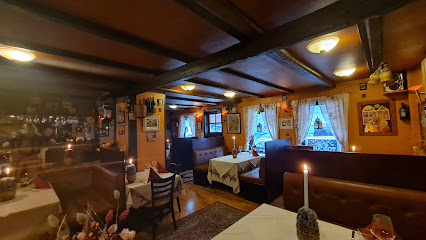
Kafé Kaspar
Discover the charm of Kafé Kaspar in Tórshavn - where delicious bagels meet cozy vibes in the heart of the Faroe Islands.
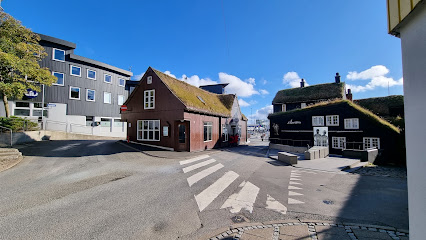
Fisk og Kips
Experience authentic Faroese flavors at Fisk og Kips - Tórshavn's top spot for delicious fish and chips.
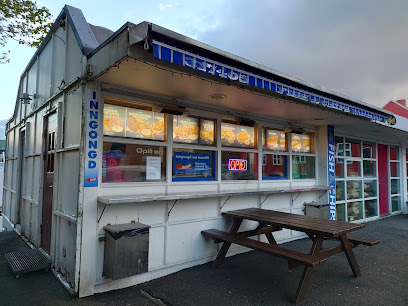
Kafe Umami
Discover Kafe Umami in Tórshavn - where local flavors meet modern culinary artistry amidst stunning island scenery.
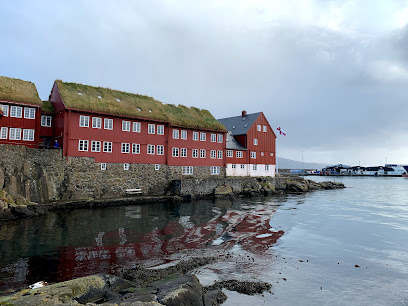
Bitin
Discover Bitin in Tórshavn: A Scandinavian gem serving fresh local flavors and authentic Faroese cuisine amidst stunning island views.
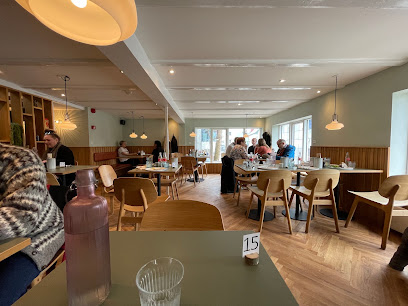
OY Brewing
Discover OY Brewing: A charming brewpub in Tórshavn offering handcrafted beers and delightful dishes inspired by Faroese culture.
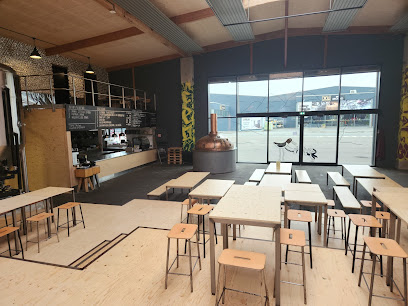
Suppugarðurin
Experience authentic ramen at Suppugarðurin in Tórshavn – where traditional flavors meet modern Faroese hospitality.
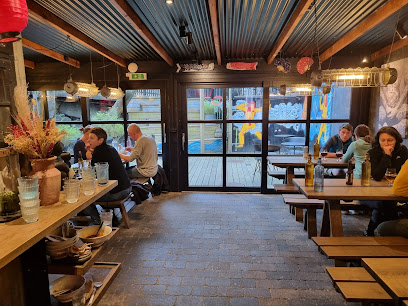
Seven
Discover authentic Chinese cuisine at Seven in Tórshavn - where tradition meets taste amidst stunning landscapes.
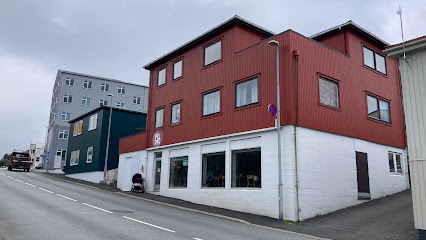
HAPS Burgerbar
Experience gourmet burgers crafted from local ingredients at HAPS Burgerbar in Tórshavn – where taste meets tradition.
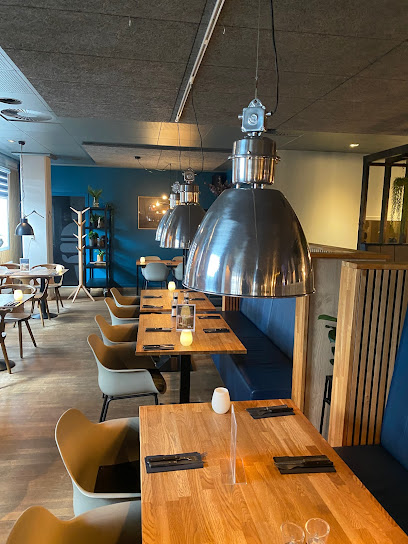
Number 1 Pizza
Experience authentic pizza perfection at Number 1 Pizza in Tórshavn, where every slice tells a story of flavor and tradition.
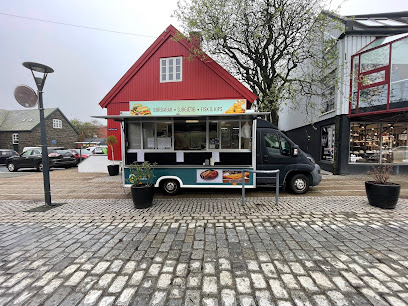
Markets, malls and hidden boutiques
Rúsdrekkasøla Landsins - Tórshavn
Explore the flavors of the Faroe Islands at Rúsdrekkasøla Landsins, Tórshavn's premier state liquor store with local and international selections.
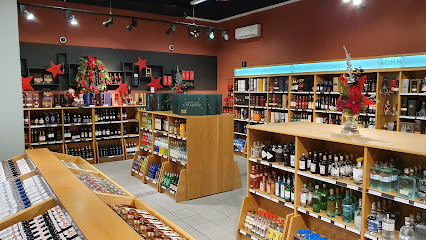
Navia (yarn)
Explore Navia, a charming knit shop in Toftir, Faroe Islands, showcasing exquisite local yarns and handcrafted knitwear for the perfect souvenir.
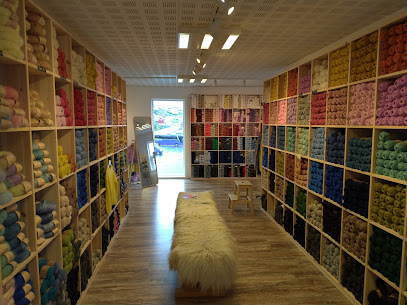
Á Landavegur
Explore the modern supermarket experience at Á Landavegur in Tórshavn, offering local and international products for every traveler's needs.
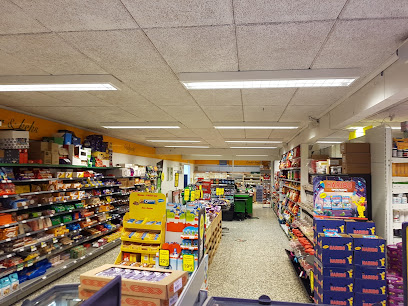
Bónus
Explore the charm of Bónus in Hoyvík, where local flavors and everyday essentials meet in the heart of the Faroe Islands.

Rúsdrekkasøla Landsins - Saltangará
Discover the essence of Faroese craftsmanship at Rúsdrekkasøla Landsins, the state liquor store offering a selection of local beers, wines, and spirits.
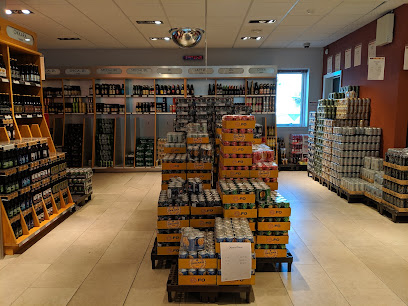
Á Handil
Experience the best of the Faroe Islands at Á Handil, where local flavors meet quality products in Tórshavn's charming grocery store.
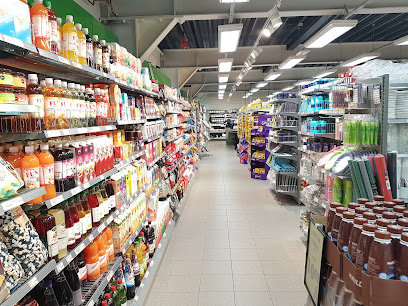
Guðrun & Guðrun
Explore the blend of contemporary fashion and traditional Faroese craftsmanship at Guðrun & Guðrun in Tórshavn.
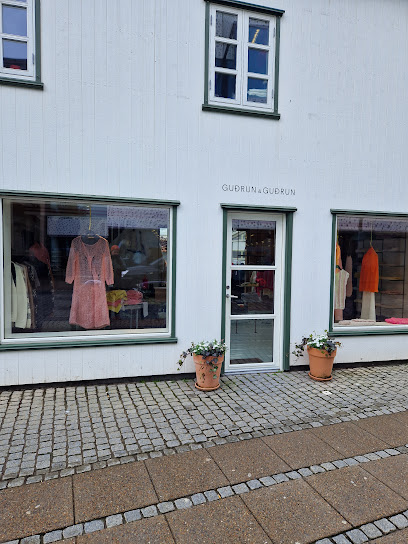
Á handil
Discover the authentic flavors of the Faroe Islands at Á handil grocery store in Tórshavn, where local meets international in a charming setting.
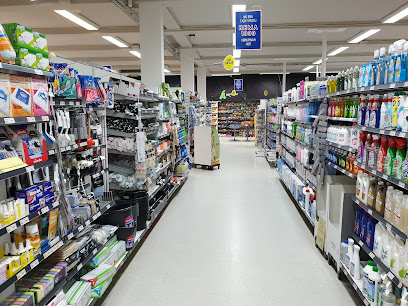
Børge
Discover Børge in Kollafjørður, an essential grocery store offering local delicacies and international products in the heart of the Faroe Islands.
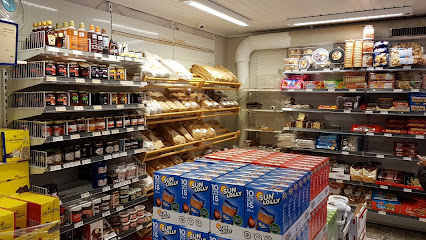
Ullvøruhúsið
Discover authentic Faroese wool garments and unique fashion pieces at Ullvøruhúsið in Tórshavn.
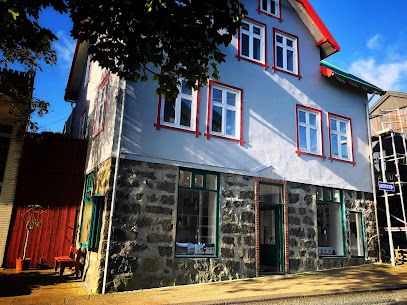
Fjord by Suffía Nón
Explore Fjord by Suffía Nón, a charming gift shop in Fuglafjørður offering unique local souvenirs and exquisite interior designs in the heart of the Faroe Islands.
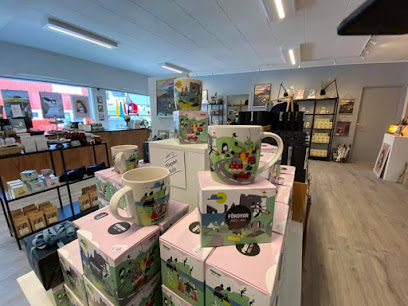
Snældan
Discover the essence of Faroese fashion at Snældan, a premier clothing store in Strendur with exquisite sweaters and local craftsmanship.
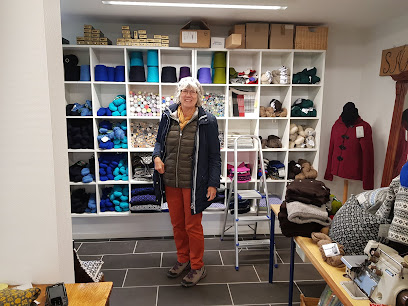
Rit & Rák
Explore the literary richness of the Faroe Islands at Rit & Rák, a charming bookstore in Tórshavn offering a cozy atmosphere and diverse selection of books.
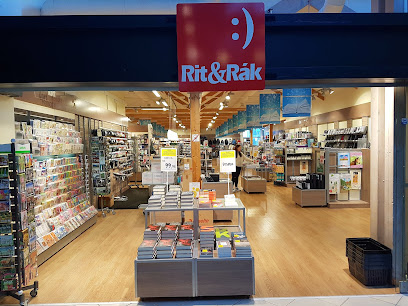
Orkis
Discover the enchanting world of Orkis, a premier florist in Saltangará, offering exquisite floral arrangements and local charm in the Faroe Islands.
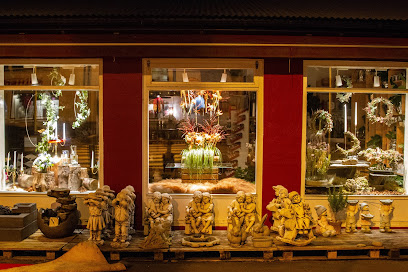
Glimmur
Discover authentic Faroese crafts and unique souvenirs at Glimmur Gift Shop in Tórshavn, the perfect spot for memorable gifts and local treasures.
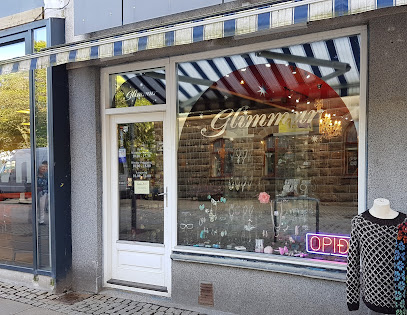
Essential bars & hidden hideouts
Irish Pub Torshavn
Experience the warmth of Irish hospitality in Tórshavn with delightful cuisine and a vibrant atmosphere at Irish Pub Torshavn.
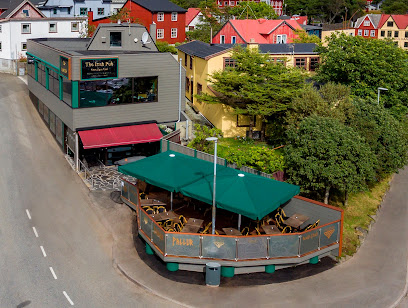
Sirkus Bar
Discover the lively Sirkus Bar in Tórshavn, where vibrant nightlife, signature cocktails, and a welcoming atmosphere await your visit in the Faroe Islands.
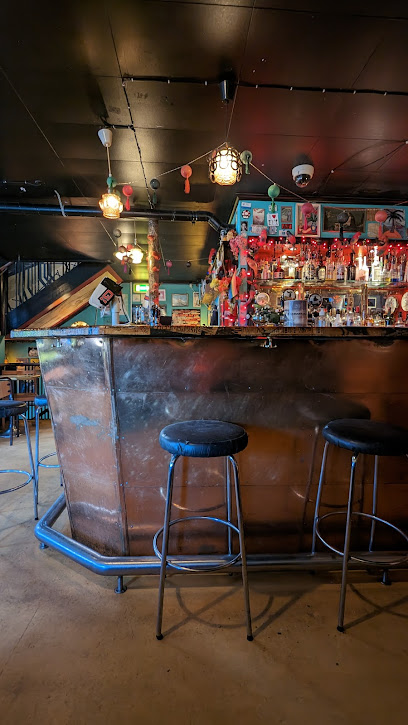
Mikkeller Tórshavn
Experience the vibrant craft beer culture at Mikkeller Tórshavn, where unique brews meet a quirky atmosphere in the heart of the Faroe Islands.
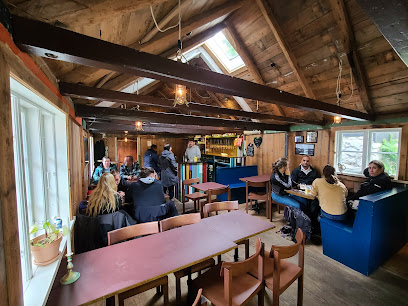
OY Brewing
Savor the taste of locally brewed beers and Faroese cuisine at OY Brewing, a delightful brewpub in Tórshavn.
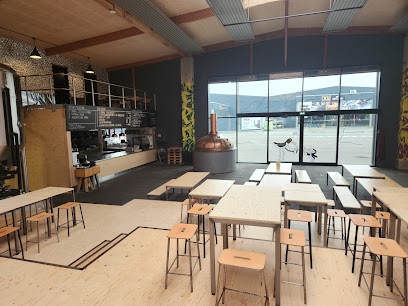
Roykstovan
Experience the charm of Roykstovan in Klaksvík, where every sip celebrates the spirit of the Faroe Islands in a cozy, inviting bar atmosphere.
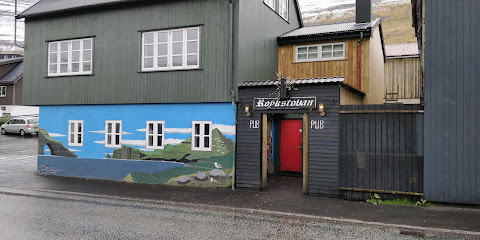
Glitnir
Experience the vibrant nightlife of Tórshavn at Glitnir, where local culture meets an eclectic drink selection in a cozy atmosphere.
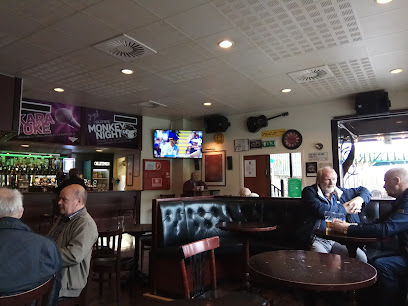
Somwang Thaifood
Experience the authentic taste of Thailand in the heart of Strendur at Somwang Thaifood, where every dish is a culinary delight.
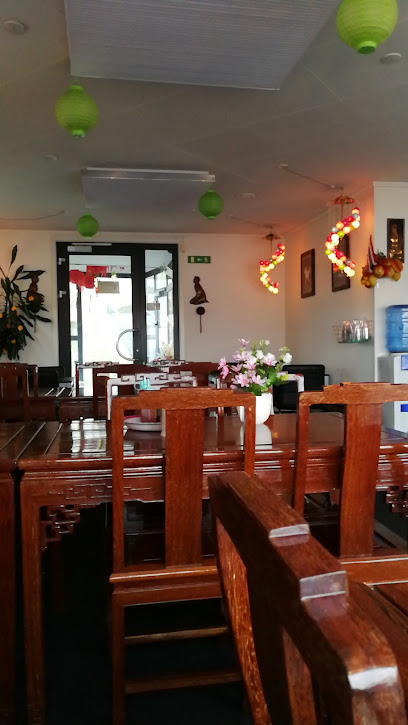
Blábar
Discover the lively Blábar, Tórshavn's jazz and blues bar, where local culture meets a vibrant nightlife experience.
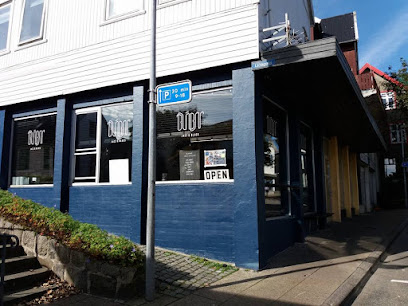
Tórshøll
Experience the warmth and charm of Tórshøll, a cozy bar in Tórshavn offering delightful drinks and a taste of local culture.
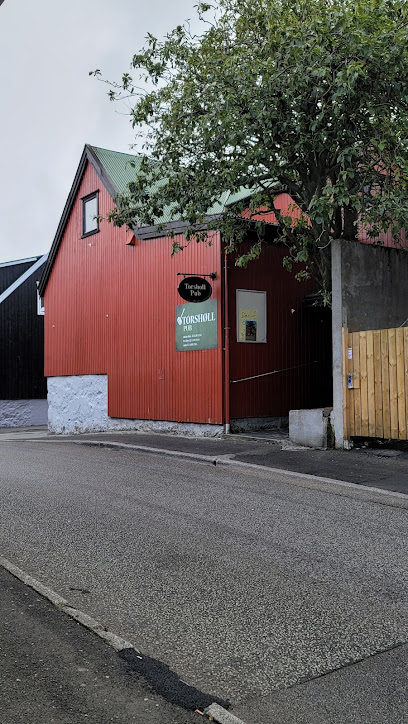
Maverick
Discover Maverick, a charming bar in Klaksvík known for its local beers, friendly atmosphere, and vibrant social scene in the heart of the Faroe Islands.
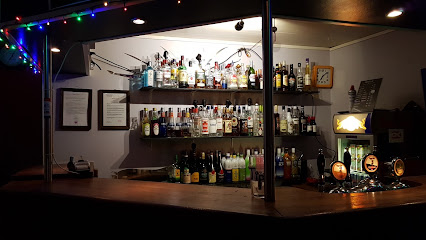
Landskrona Sports Bar
Discover Landskrona Sports Bar, Tórshavn's go-to spot for live sports, delicious drinks, and a vibrant atmosphere in the heart of the Faroe Islands.
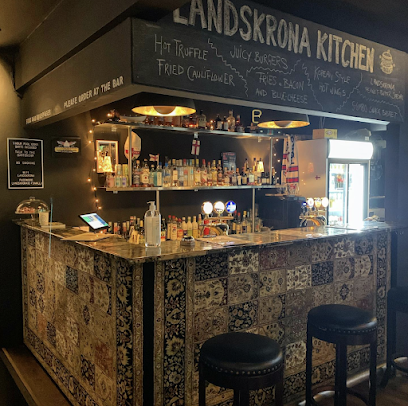
Bjórkovin, the Beer Hub
Experience the lively atmosphere of Bjórkovin, Tórshavn's premier bar for craft beer enthusiasts and social gatherings in the heart of the Faroe Islands.
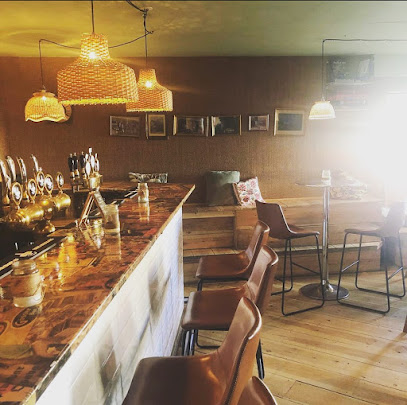
Snældan
Explore Snældan in Strendur for unique Faroese fashion that blends tradition with modern style, perfect for tourists seeking authentic local experiences.
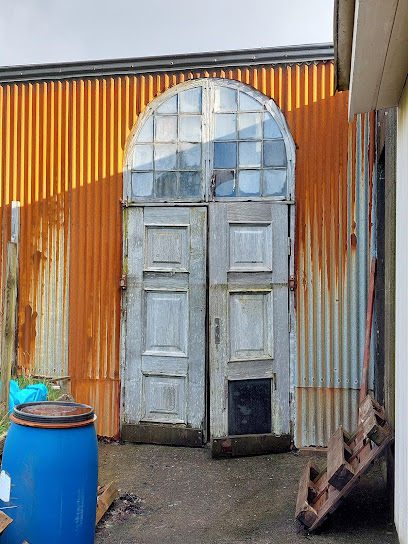
Mass & Mia
Discover the heart of Tórshavn at Mass & Mia, a cozy bar offering local drinks and authentic Faroese hospitality.

JOEPIZZA
Savor the flavors of Strendur at JOEPIZZA, your go-to pizza takeout for delicious meals amidst stunning Faroe Islands scenery.

Local Phrases
-
- HelloHallo
[ha-lo] - GoodbyeFarvæl
[far-væl] - YesJa
[ya] - NoNei
[nay] - Please/You're welcomeVænta
[væn-ta] - Thank youTakk fyri
[tak fy-ri] - Excuse me/SorryFyrirgev
[fy-ri-gev] - How are you?Hvussu gongur tú?
[hvus-su gon-gur too] - Fine. And you?Gott. Og tú?
[got. og too] - Do you speak English?Talar tú enskt?
[ta-lar too enskt] - I don't understandEg skilji ikki
[eg skil-yi ik-ki]
- HelloHallo
-
- I'd like to see the menu, pleaseEg vil síggja matseðilin, takk
[eg vil see-ya mat-se-thil-in, tak] - I don't eat meatEg eta ikki kjøt
[eg eta ik-ki kyo-t] - Cheers!Skál!
[skawl] - I would like to pay, pleaseEg vil gjalda, takk
[eg vil gjal-da, tak]
- I'd like to see the menu, pleaseEg vil síggja matseðilin, takk
-
- Help!Hjálp!
[hyaalp] - Go away!Far burtur!
[far bur-tur] - Call the Police!Róður politi!
[ro-dur po-li-ti] - Call a doctor!Róður læknari!
[ro-dur lek-na-ri] - I'm lostEg er týttur
[eg er tytt-ur] - I'm illEg er sjúk/ósjúk
[eg er syuk/o-syuk]
- Help!Hjálp!
-
- I'd like to buy...Eg vil keypa...
[eg vil kee-pa] - I'm just lookingEg er bara at gloyma
[eg er ba-ra at glu-ima] - How much is it?Hvussu nógv kostar tað?
[hvus-su nov kost-ar tad] - That's too expensiveTað er ov dýrt
[tad er ov deert] - Can you lower the price?Kann tú lætta prísin?
[kan too lye-ta prise-in]
- I'd like to buy...Eg vil keypa...
-
- What time is it?Hvat er klukkan?
[kvat er klu-kan] - It's one o'clockTað er eitt
[tad er iyt] - Half past (10)Hálv tíggju
[howl veer-yu] - MorningMorgun
[mor-gun] - AfternoonEftirmiddagur
[ef-tir-mid-da-gur] - EveningKvøld
[kvoold] - YesterdayÍ gjár
[ee gyar] - TodayÍ dag
[ee daag] - TomorrowÁ morgun
[a mor-gun] - 1Eitt
[iyt] - 2Tvø
[tvo] - 3Trý
[try] - 4Fýra
[fy-ra] - 5Fimm
[fim] - 6Seks
[seks] - 7Sjey
[syei] - 8Átta
[at-ta] - 9Ni
[nee] - 10Tíggju
[veer-yu]
- What time is it?Hvat er klukkan?
-
- Where's a/the...?Hvar er ein/hetjan...?
[kvar er iyn/het-yan] - What's the address?Hvat er heimilsheitin?
[kvat er haym-ils-hey-tin] - Can you show me (on the map)?Kann tú vísa mær (á kortið)?
[kan too vee-sa myar (ow kort-ith)] - When's the next (bus)?Nær kemur næsti (bussurin)?
[nayr kem-ur nay-sti bus-sur-in] - A ticket (to ....)Eitt miða (til ....)
[iyt mid-a til]
- Where's a/the...?Hvar er ein/hetjan...?
History of Strendur
-
Strendur, located on the eastern coast of Eysturoy in the Faroe Islands, was established in the early Viking Age, around the 9th century. The name 'Strendur' is derived from the Old Norse word for 'beach' or 'shore,' reflecting its coastal location. The early settlers were primarily Norsemen who were drawn to the island's fertile land and abundant fishing opportunities.
-
During the medieval period, Strendur became known for its robust trade activities. The town's strategic location on the Skálafjørður fjord allowed it to thrive as a hub for maritime trade within the Faroe Islands and beyond. Fishing, sheep farming, and boatbuilding were the mainstays of the local economy, with dried fish being a significant export product.
-
In the 17th century, the influence of the Hanseatic League, a powerful commercial and defensive confederation of merchant guilds and market towns in Northwestern and Central Europe, extended to the Faroe Islands, including Strendur. The League's presence brought increased trade opportunities and wealth to Strendur, fostering economic growth and cultural exchange.
-
World War II brought significant changes to Strendur and the Faroe Islands as a whole. In 1940, British forces occupied the islands to prevent a German invasion. Strendur, like other Faroese towns, experienced an influx of British soldiers, which led to the construction of new infrastructure and the modernization of existing facilities. The occupation also brought about cultural exchanges and left a lasting impact on the local community.
-
Following World War II, Strendur underwent substantial development and modernization. The fishing industry continued to be the backbone of the local economy, but advancements in technology and infrastructure spurred growth in other sectors as well. The construction of better road networks and the establishment of new educational and healthcare facilities improved the quality of life for Strendur's residents.
-
Strendur is rich in cultural heritage, with traditions that have been passed down through generations. The town is known for its vibrant community events, including the annual Ólavsøka festival, which celebrates Faroese culture with music, dance, and traditional sports. The local church, built in 1875, stands as a testament to the town's historical and architectural legacy.
-
Today, Strendur is a picturesque town that blends its historical roots with modern amenities. The town's economy remains largely based on fishing, but tourism has become increasingly important. Visitors are drawn to Strendur for its stunning landscapes, historical sites, and the warm hospitality of its residents. The town continues to honor its rich history while looking towards a sustainable and prosperous future.
Strendur Essentials
-
Strendur is located on the island of Eysturoy in the Faroe Islands. The nearest airport is Vágar Airport (FAE), which is about 60 kilometers away. From the airport, you can take a bus or a rental car to reach Strendur. The journey typically takes around 1.5 hours by road. Alternatively, you can take a ferry from Tórshavn, the capital of the Faroe Islands, which connects to various locations on Eysturoy, including Strendur.
-
Strendur is a small village, and many of its attractions are within walking distance. For longer trips, rental cars are a convenient option to explore the island at your own pace. Public buses also operate within Strendur and connect to other parts of Eysturoy and the Faroe Islands. Taxis are available but can be relatively expensive.
-
The official currency in the Faroe Islands is the Faroese króna (FOK), although the Danish krone (DKK) is also widely accepted. Credit cards are accepted in most hotels, restaurants, and shops, but it is advisable to carry some cash, especially when visiting smaller establishments. ATMs are available in Strendur, but it is wise to withdraw sufficient cash beforehand to ensure you have enough funds.
-
Strendur is generally a safe destination for tourists. Crime rates are low, and it is rare for tourists to be targeted. However, it is advisable to take standard precautions, such as not leaving valuables unattended and being cautious when walking alone at night in unfamiliar areas.
-
In case of emergency, dial 112 for immediate assistance. The local police station and medical facilities are available in Strendur. It is recommended to have travel insurance that covers medical emergencies. For minor health issues, there are pharmacies in the village where you can purchase over-the-counter medications.
-
Fashion: Do dress in layers and be prepared for changing weather conditions. Avoid wearing overly revealing clothing. Religion: Do respect local customs and traditions. Remove your hat when entering churches. Public Transport: Do be respectful and give up your seat to elderly passengers. Don't eat or drink on public transport. Greetings: Do greet people with a friendly 'Hallo' or 'Góðan dag'. A handshake is also common. Eating & Drinking: Do try local delicacies and accept food offerings graciously. Don't refuse hospitality, as it is considered impolite.
-
To experience Strendur like a local, visit the local fish market where you can buy fresh seafood. Engage with locals, as they are often friendly and willing to share stories about the village's history and culture. Don't miss visiting the nearby Risin og Kellingin sea stacks, which offer breathtaking views. For a unique experience, take a hike on one of the many trails around Strendur, offering stunning panoramas of the surrounding landscape.
Trending Landmark in Strendur
-
Kirkjubømúrurin
-
Gjógv Natural Harbour
-
The Nordic House
-
Skansin
-
Trælanípa
-
The Seal Woman (Kópakonan)
-
The National Gallery of The Faroe Islands
-
Tjóðsavnið (Faroe Islands National Museum)
-
Kallur Lighthouse
-
Bøsdalafossur Waterfall
-
Slave Cliff (Lake Above the Ocean)
-
Klakkur
-
Tórshavn Cathedral
-
Slættaratindur
-
Suppugarðurin
Nearby Cities to Strendur
-
Things To Do in Runavík
-
Things To Do in Gøta
-
Things To Do in Tórshavn
-
Things To Do in Argir
-
Things To Do in Kvívík
-
Things To Do in Hvalvík
-
Things To Do in Nólsoy
-
Things To Do in Klaksvik
-
Things To Do in Sandavágur
-
Things To Do in Vestmanna
-
Things To Do in Miðvágur
-
Things To Do in Sorvagur
-
Things To Do in Tvøroyri
-
Things To Do in Vágur
-
Things To Do in Seydisfjordur








